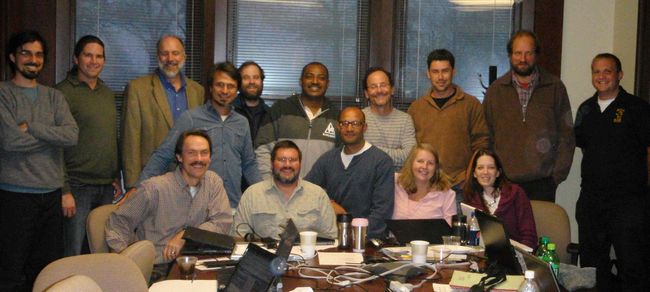Pardee Center Hosts 2nd Marine Management Area Science Scientific Workshop
On 20 – 23 January, 2010, a meeting of participating investigators and science communicators was convened at the Pardee Center to begin work on the booklet Living with the Sea: one of the thematic science-to-action products focusing on disseminating the results from the natural science studies. The meeting was co-organized by the Boston University Marine Program and Conservation International.
Living with the Sea will showcase Marine Management Area Science (MMAS)work and findings related to the natural sciences. It will present the field’s best thinking for living in harmony with the coastal seas, habitats and species. This booklet will be used to engage international, regional and national policy makers in relation to the need to care and invest in the conservation of coastal and marine biodiversity to maintain the ecosystem services they provide. The target completion for the booklet is March 2010.
The second goal as to flesh out a technical support document for a new approach to measuring coral reef ecosystem health in a manner that is comparable across our planet’s coral reef estate, despite vast differences in species composition, geomorphology, diversity, and environmental conditions. The new index is called “CHI” (transliteration of the Chinese logogram “qi”, meaning life force, or literally “breath”), which stands for “Community Health Index”. The basics of CHI were derived from comparative study of Central Pacific coral reef systems arrayed along a gradient of human impact, from the world’s most pristine, to quite heavily impacted by high human population density. The major components of CHI are measures of fish biomass, benthic cover, and the microbial community. MMAS and colleagues are developing ways of deriving diagnostically useful measures of CHI at both the extreme low- and high-tech ends of the spectrum, but are especially concerned with the former.